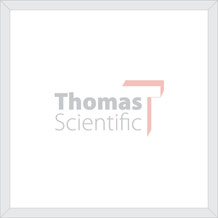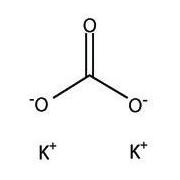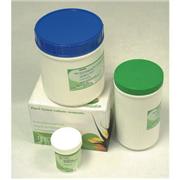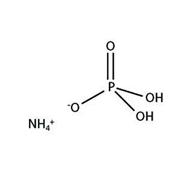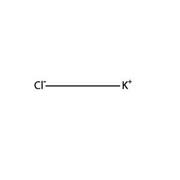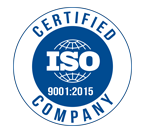bioWORLD, 1 kg
-
The bioWORLD bioPLUS™ anhydrous potassium phosphate dibasic is suitable for use in molecular biology experiments and plant tissue culture technique. Application: For Research & Laboratory Use Only
-
Gelatin for Bacteriological Media
bioWORLDA high grade granular preparation of gelatin that can be used alone as a solidification agent or incorporated into microbiological media as a nutrient or to determine gelatin liquefaction. Ash: 0.17% Moisture: 8.7% Coliforms: less than 3/gm Std. Plate: 10/gm/p> E. coli…
-
Sodium Acetate Anhydrous is used for precipitation of nucleic acids and preparation of gel stains for protein gel electrophoresis. Sodium Acetate Anhydrous can serve as a reagent with many uses including nucleic acid precipitation in isolation protocols and for use in buffers. Application: For…
-
Brilliant Green Agar
bioWORLDUsed in the isolation of Salmonella species from foods, especially eggs pH: 7.0 Dehydrated Appearance: pink, homogeneous powder Prepared Appearance: orange-brown agar Soluble in boiling water Composition: Yeast Extract Pancreatic Digest of Casein Peptone …
-
Potassium Carbonate, anhydrous
bioWORLDSynonyms: Carbonate of potash; Dipotassium carbonate; Dipotassium salt; Pearl ash; Potash; Salt of tartar; Salt of wormwood A potassium salt for deproteinization and as a drying agent Common biochemical reagent used in soap, glass, and china production and as a drying agent and…
-
Ammonium sulfate
bioWORLDIt is used largely as an artificial fertilizer for alkaline soils. In the soil the ammonium ion is released and forms a small amount of acid, lowering the pH balance of the soil , while contributing essential nitrogen for plant growth. It is also used as an agricultural spray adjuvant for water…
-
Bovine Serum Albumin (BSA)
bioWORLDReagent grade, fatty acid free Moisture: < 1.0% Heavy metals: <0.5% Endotoxin: ≤0.1EU/mg pH (10% water): 6.5 - 7.5
-
Agarose 1, Biotech Grade
bioWORLDbioPlus Agarose I is formulated specifically for analysis of nucleic acids, using standard electrophoretic techniques. Biotechnology Grade Gel strength: >1200g/cm2 Gelling point: 33-39°C Melting point: 87-89YC Sulfate EEO(-mr) DNase, RNase, Protease activity: None detected …
-
Yeast Nitrogen Base,w/o Amino Acids
bioWORLDFor classifying yeasts based on amino acid and carbohydrates requirements Requires addition of a carbon source Does not contain histidine, methionine, or trypophan pH: 5.2 - 5.6 Working Concentration: 6.7 g/L (single-strength) or 67 g/L (10X) Can be supplemented with choice…
-
Brain-Heart Infusion Agar
bioWORLDUsed in the cultivation of a wide variety of microorganisms including bacteria, yeasts and molds With the addition of 5% or 10% sheep blood, it is used for the isolation and cultivation of a wide variety of fungal species from clinical and nonclinical sources pH: 7.4 Dehydrated…
-
Paraplast, 1 kg
bioWORLDFor the preparation of paraffin embedded tissue samples Used in candles, lubricants, crayons, floor polishes, cosmetics, chewing gum. Paraffin is used in fuels, Paints, Pigments, Dyes and Inks,Rubber,Medicine etc. Cut Size is 4µ 1 kg packs Does not contain DMSO …
-
Ferric chloride, hexahydrate
bioWORLDA catalyst in organic synthesis ACS grade Insolubles: <0.01% Nitrate: <0.01% Phosphorus (as PO4: <0.01% Sulfate: <0.01% Copper: <0.003% Ferrous Iron: <0.002% Non-precipitables (NH4OH):<0.1% Zinc: <0.003 Regulated…
-
Sodium Alginate
bioWORLDSodium Alginate, or Alginic Acid Sodium Salt, is a natural amylose carbohydrate distilled from algae. It is used in biotechnology as an effective stabilizer and emulsifier. In the presence of Calcium ions, Sodium Alginate has been observed to form cross-linked gels for cell immobilization. Plant…
-
Agar, Bacteriological
bioWORLDFine, light-colored granules Bacteriological Grade Gel Strength: 550–950 g/cm2 Gelling Temperature: 34–38 °C Melting Temperature: 84–88 °C pH: 6.0–7.5 Soluble in boiling water
-
Luria Broth Base, Miller
bioWORLDFormulated for the propagation and maintenance of E. coli for molecular biology Contains one-tenth the sodium chloride content as LB Broth, Lennox and one-twentieth the sodium chloride content as LB Broth, Miller formulations pH: 7.0 Dehydrated Appearance: light tan, homogeneous…
-
Magnesium Sulfate, heptahydrate
bioWORLDA preparation of magnesium sulfate Synonym: Epsom salt ACS Grade Chloride: <0.0005% Nitrate: <0.002% Ammonium: <0.002% Calcium: <0.02% Heavy metals (as Pb): <0.0005% Iron: <0.0005% Manganese: <0.0005% Potassium: <0.005% …
-
Malt Extract Agar
bioWORLDUsed for the isolation, enumeration, and cultivation of yeasts, molds and other aciduric microorganisms pH: 4.7 Dehydrated Appearance: off-white, homogeneous powder Prepared Appearance: light amber agar Soluble in boiling water Composition (Per Liter): Malt…
-
bioPLUS™ Sodium Metabisulfite
bioWORLDAn antioxidant reducing agent, with antimicrobial and antifungal properties. Application: For Research and Laboratory use only
-
Baird Parker Agar
bioWORLDCommonly used in the detection and enumeration of coagulase-positive staphylococci in food samples Contains potassium tellurite and lithium which supresses the growth of most bacteria but allows the growth of staphylococcus aureus pH: 6.9 Dehydrated Appearance: light tan,…
-
Luria Agar Base, Miller
bioWORLDFormulated for the propagation and maintenance of E. coli for molecular biology Contains one-tenth the sodium chloride content as LB Agar, Lennox and one-twentieth the sodium chloride content as LB Agar, Miller formulations pH: 7.0 Dehydrated Appearance: Light tan, homogeneous…
-
Boric acid (Molecular Biology Grade)
bioWORLDA commonly used molecular biology reagent and also used in electrophoresis buffers. pKa (@ 20°C): 9.24 Molecular Biology Grade (also available in Proteomics Grade) Chloride: <.001% Phosphate: <0.001% Sulfate: <0.01% Calcium: <0.005% Heavy metals…
-
 Murashige & Skoog(MS) Medium
bioWORLD
Murashige & Skoog(MS) Medium
bioWORLDPlates containing the Macronutrients and Micronutrients as described by Murashige & Skoog (1967) with the addition of Hygromycin.
-
A polymer used to precipitate proteins, viruses, DNA and RNA. Compound is hydroscopic.s Appearance: Solid Density: 1.21 g/cm3 at 20°C pH Value: 5-7 RTECS Number: TQ4025000
-
Ammonium Acetate
bioWORLDBeing the salt of a weak acid and a weak base, ammonium acetate has a number of distinctive properties. It is occasionally employed as a biodegradable de-icing agent. It is often used with acetic acid to create a buffer solution, one that can be thermally decomposed to non-ionic products. It is…
-
An oxidation resistant analytical standard ACS grade Insolubles: <0.01% Chloride: <0.001% Nitrate: <0.001% Copper: <0.003% Ferrous Iron: <0.001% Non-precipitates: <0.05% Zinc: <0.003% Appearance: Solid Boiling Point: 230°C…
-
This is a common chemical reagent used in buffer solutions. Application: For Research and Laboratory use only
-
bioPLUS™ Sodium Sulfate Anhydrous
bioWORLDThe bioWORLD sodium sulfate anhydrous is an ideal thing to have in any chemical laboratories, medicinal facilities or healthcare units for a wide range of purposes such as scientific research and development. Application: For Research and Laboratory use only
-
Ferrous sulfate, heptahydrate
bioWORLDA reducing agent with many other applications Used as a mordant in dyeing wool, in the manufacture of ink, in water purification as a substitute for aluminum sulfate, as a fertilizer, and as a feed additive. Used to produce magnetic ferric oxide. ACS Grade Insolubles: <0.01% …
-
bioPLUS™ Sucrose, Ultra Pure Grade
bioWORLDSucrose is a disaccharide related to Glucose and Fructose. It is most commonly used in biotechnology as a carbohydrate source in plant tissue culture media. Sucrose has been observed to significantly improve root and shoot growth. Ultra Pure Grade Sucrose is DNase and RNase free. It is a popular…
-
Ammonium phosphate, monobasic
bioWORLDIt is formed when a solution of phosphoric acid is added to ammonia until the solution is distinctly acidic. It is often used in the blending of dry agricultural fertilizers. It supplies soil with the elements nitrogen and phosphorus in a form which is usable by plants. The compound is also a…
-
Murashige & Skoog (MS) Medium
bioWORLDContains Micronutrients and Macronutrients as described by Murashige & Skoog (1962) Sucrose, Cytokines, Vitamins, and Auxins should be added as needed v Provided as 1 unit to make 10L, 25L, or 50L of medium, or as 10 units to make 1L of medium; or as 1 kg of powder Plant tissue culture tested…
-
Potassium Chloride
bioWORLDA common laboratory reagent and standard Specifications ACS Grade Iodide: <0.002% Bromide: <0.01% Chlorate and Nitrate: <0.003% Nitrogen compounds: <0.001% Phosphate: <0.0005% Sulfate: <0.001% Barium: <0.001% …



